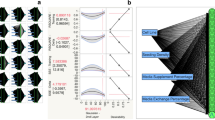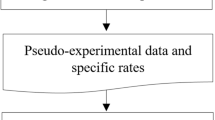
Access this book
Tax calculation will be finalised at checkout
Other ways to access
About this book
Similar content being viewed by others
Keywords
Table of contents (8 chapters)
-
Front Matter
-
Back Matter
Authors and Affiliations
Bibliographic Information
Book Title: Modelling and Optimization of Biotechnological Processes
Book Subtitle: Artificial Intelligence Approaches
Authors: Lei Zhi Chen, Xiao Dong Chen, Sing Kiong Nguang
Series Title: Studies in Computational Intelligence
DOI: https://doi.org/10.1007/978-3-540-32493-5
Publisher: Springer Berlin, Heidelberg
eBook Packages: Engineering, Engineering (R0)
Copyright Information: Springer-Verlag Berlin Heidelberg 2006
Hardcover ISBN: 978-3-540-30634-4Published: 12 January 2006
Softcover ISBN: 978-3-642-06792-1Published: 18 November 2010
eBook ISBN: 978-3-540-32493-5Published: 04 July 2007
Series ISSN: 1860-949X
Series E-ISSN: 1860-9503
Edition Number: 1
Number of Pages: VIII, 123
Topics: Mathematical and Computational Engineering, Artificial Intelligence, Biomedical Engineering and Bioengineering, Bioinformatics



